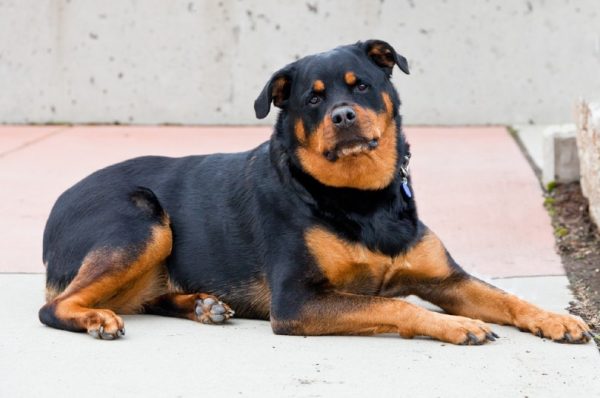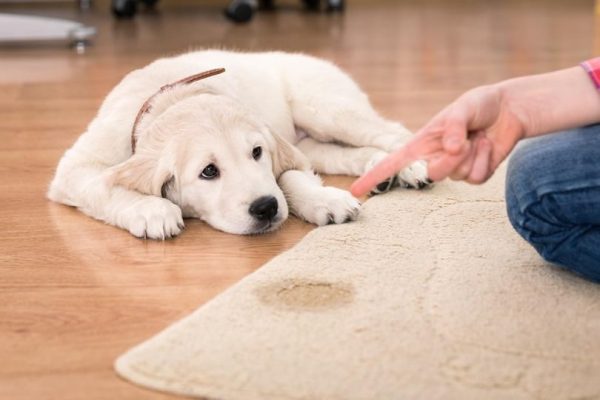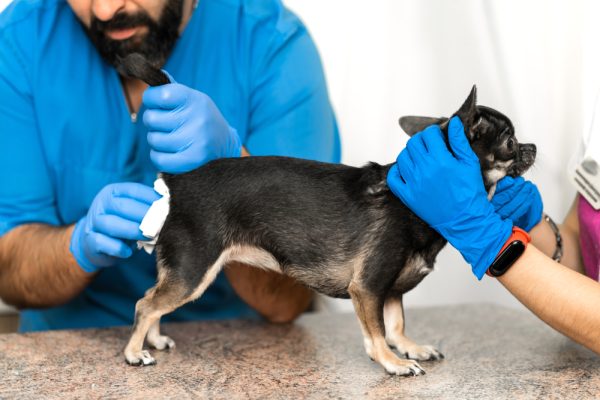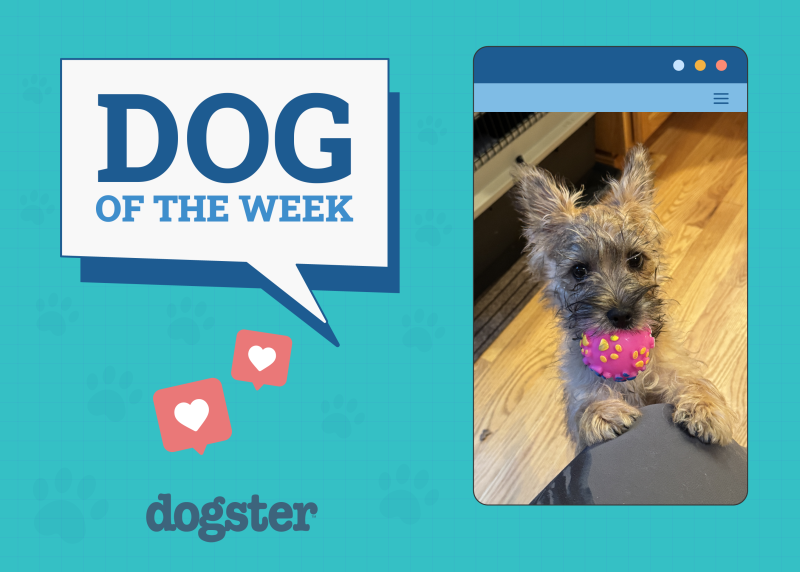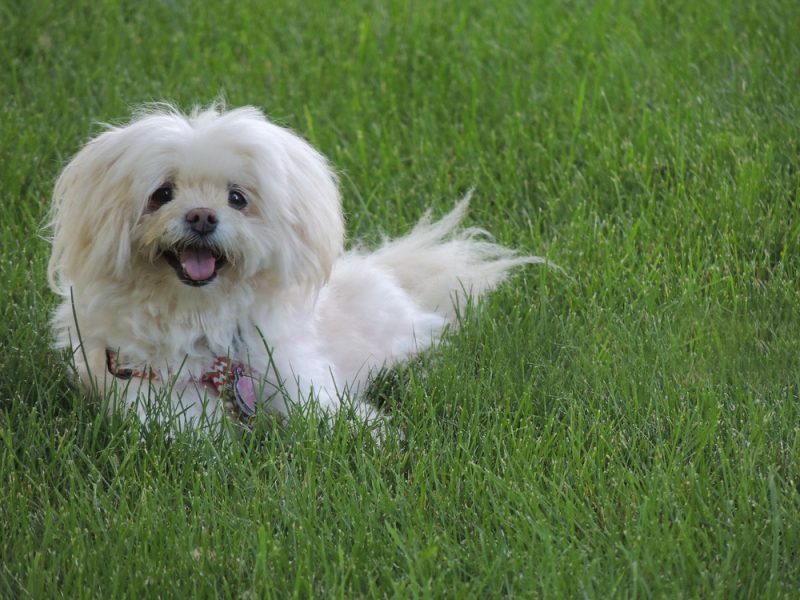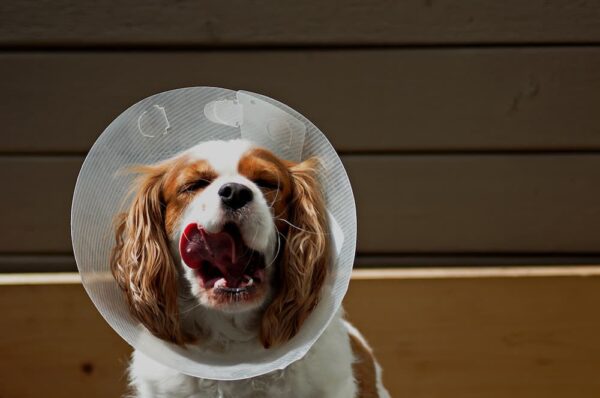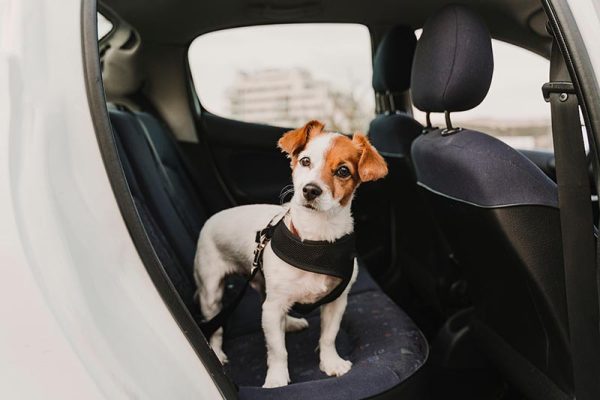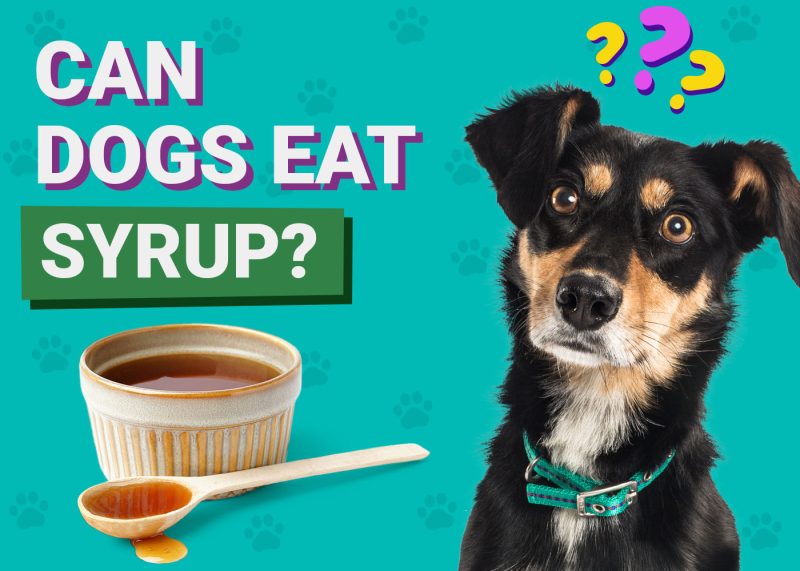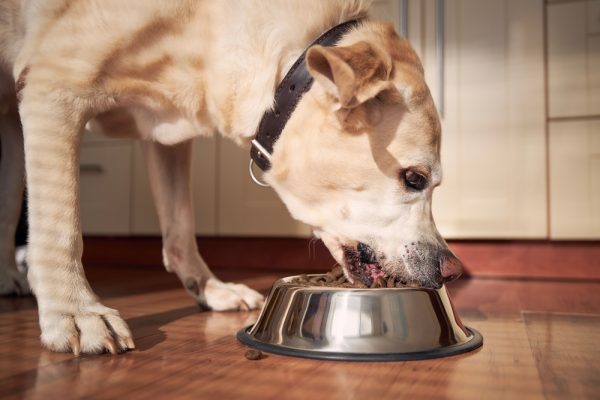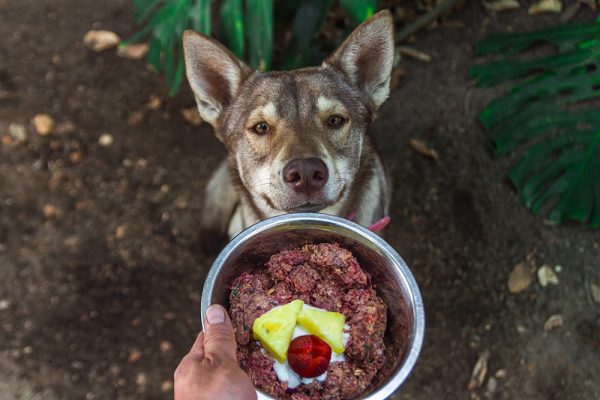In this article
It’s not uncommon for dogs to lick their humans, but sometimes they pick some pretty odd places to do it. Some dogs seem to really have a thing for belly buttons, and, though it may seem baffling, there are a fair few possible reasons for this behavior.
In this post, we endeavor to help you make sense of your dog’s partiality to belly button licking by exploring why they might be doing it.

The 7 Reasons Why Your Dog is Licking Your Belly Button
1. It Tastes Good
We know how weird this sounds, but there’s every possibility that your dog is attracted to the saltiness of your skin or—sorry to get gross—any bacteria growing in your belly button. Sweat from the eccrine glands contains salt, and, once this gets onto your skin, your dog may quickly sniff it out and explore the area by licking.
Dogs don’t have many taste buds, and they lick to enhance their sense of smell, which could explain why they’re drawn to certain areas of the body.
2. Instinctive Behavior
Licking is a normal behavior for dogs and something they do instinctively. This is partly because the action of licking releases hormones called endorphins, which help dogs feel calmer and more relaxed. Puppies learn this behavior from their mothers.
In short, your dog may simply have the urge to act out their natural instincts, or it could be that licking your belly button just makes them happy! If they only do this now and again, there shouldn’t be any real problem (unless it tickles or grosses you out), but if it’s constant, there may be another issue at hand, which brings us to our next possible reason.

3. Stress Relief
If your dog compulsively licks your belly button or other areas of your body, it may be because they’re feeling stressed and are trying to self-soothe. As mentioned, dogs get a sense of calm and relaxation from licking, so if your dog does this a lot, they could be addicted to licking as a result of stress or boredom.
Keep an eye on your dog for other signs of anxiety, like restlessness, using the bathroom inside the house instead of outside, pacing, destructive behavior (chewing or scratching furniture), whining, and excessive barking. Speak to your vet if you suspect canine anxiety.
If you need to speak with a vet but can't get to one, head over to PangoVet. It's our online service where you can talk to a vet online and get the advice you need for your pet — all at an affordable price!
4. Grooming
Grooming is a bonding tool among dogs, so your dog could be licking your belly button because they’re trying to bond with you in the same way. It’s also a way of showing affection, friendship, and, when a younger dog licks an older dog, submission, so you might want to consider yourself truly honored!
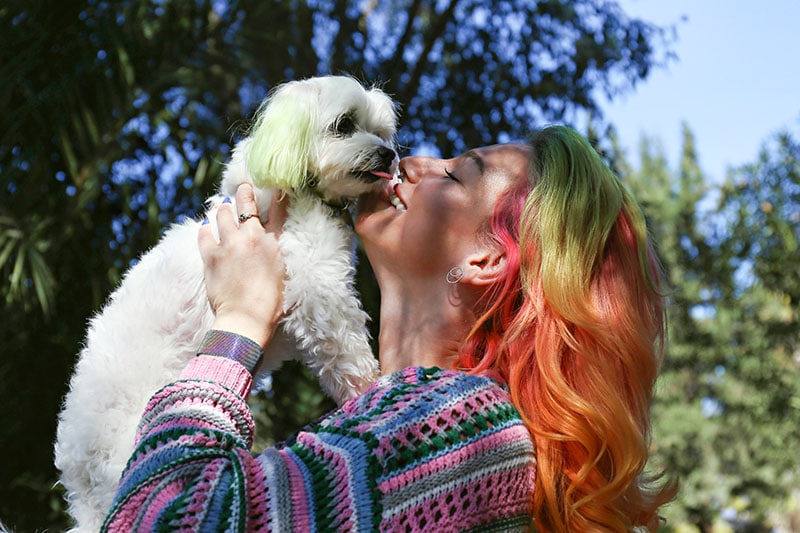
5. Reward
If your dog has licked your belly button in the past, you may have found it cute and given them a pat, stroke, or cuddle as a result. Or perhaps you laughed and smiled when they did it because it tickled. This reinforces the idea that the dog will get rewarded in some way for the behavior, which is a possible reason they keep repeating it—they simply want more of your attention.
6. Curiosity
Dogs use their sense of smell and taste to explore new things, which is why they tend to “mouth” on things a lot as puppies. Your belly button could well be something new and interesting to your dog, so they start licking as a way of gathering information about it. This might sound strange, but it’s normal among dogs.
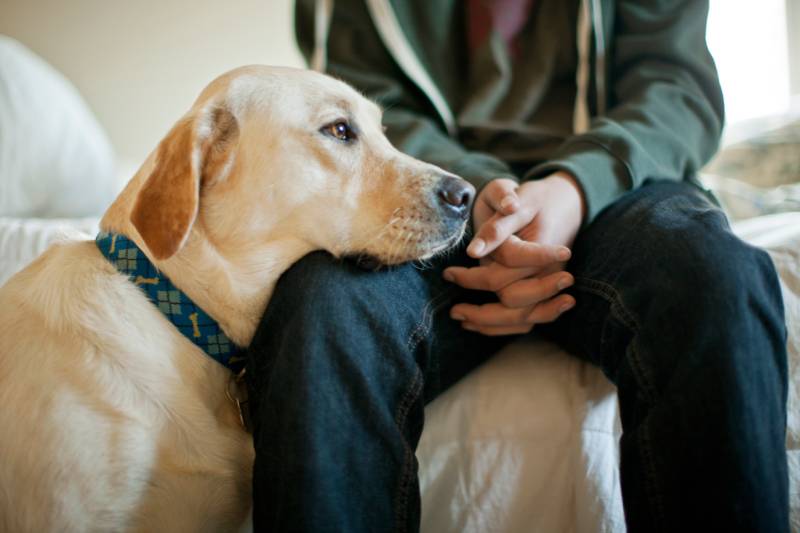
7. You’re Wounded or Have an Ailment
If you have a wound around your belly button area, your dog may be licking it to try and clean it for you—this is just instinctive behavior for dogs. Another possibility is that you have some kind of ailment connected with your stomach or abdominal area and your dog can smell it.
It has been confirmed, for example, that dogs are capable of smelling various types of cancers. Some owners who have received cancer diagnoses have reported behaviors in their dogs like nipping and licking persistently at the affected area of the body.
Don’t panic—there are so many benign reasons why your dog could be licking you—but it’s always good to be aware of these things, just in case.

How to Stop Your Dog Licking Your Belly Button
If your dog’s licking tendencies are troubling you, it’s time to show them it’s not something you approve of. One way you can do this is to move away from your dog when they try to lick you. Avoid speaking or giving any kind of positive or negative attention—just walk off. This shows your dog that you don’t like what they’re doing, but it may take several attempts for them to get it.
You can also try redirecting the behavior onto something more suitable, like a chew toy or obstacle feeder. Most importantly, make sure your dog gets plenty of exercise and mental stimulation to help prevent boredom and stress. Stick with whatever technique or techniques you use and avoid giving in—with consistency, your dog should stop the behavior.
If your dog doesn’t stop licking you, they may be experiencing some anxiety, so it’s best to speak to a vet to find out how you can help reduce their stress.
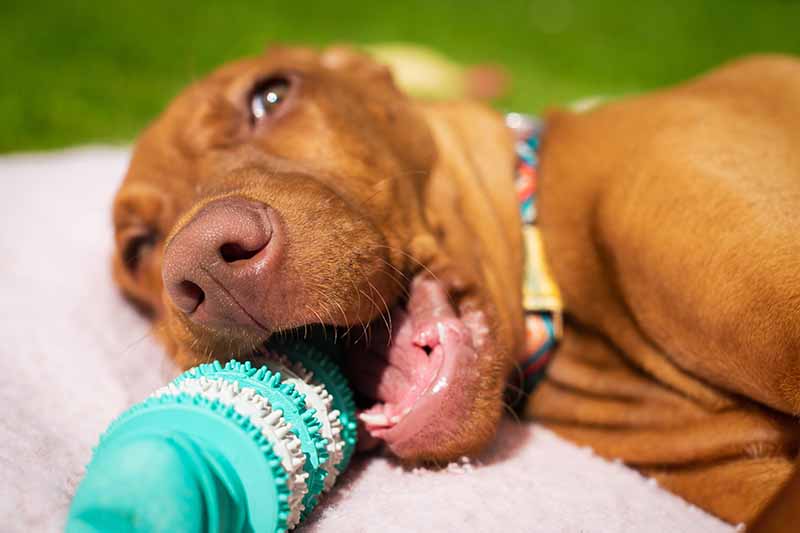

Conclusion
Dogs usually lick their human companions to bond, show affection, explore new tastes and smells, and release those feel-good endorphins. This behavior becomes a problem when you don’t want it to happen, and your dog continues to do it.
If this is the case, you need to start setting some boundaries by not rewarding the behavior with any kind of attention. Redirection is another great tactic—stock up on some exciting interactive toys if you haven’t already.
Featured Image Credit: eva_blanco, Shutterstock


